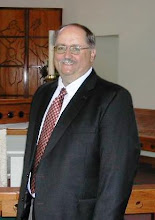By Paul
Asay
A man, heavily
armed and wearing a bulletproof vest, opens fire on a theater full of innocents, killing 12
people and wounding scores of others. Officials find signs his apartment may be
booby trapped — trip wires tied to what appear to be homemade bombs. When
police remove the killer’s gas mask, they discover the suspect — 24-year-old James Holmes — has dyed his hair red.
The Joker, he
calls himself.
If only it had
been a scene. If only the people in that Aurora, Colo., theater could’ve
watched the horror unfold on screen, it would’ve made some sort of sense. It
would’ve driven the plot forward, pushed Nolan’s brooding Dark Knight
into action. And after Nolan called “cut,” actors and extras would’ve gotten
up, brushed themselves off and walked away.
But there in Aurora, there was no Batman to stop the killer, no
director to cut the scene. There was no plan to it, no plot — at least not that
we can see. It’s just a tragedy — another senseless horror in a world that’s
known far too many.
Of all the words
that can be used to describe the Aurora shooting, “senseless” may be the worst
word of all — particularly for those of us who call ourselves Christian. We
claim to worship a good, just and all-powerful God — a God who loves us with a
passion as broad as the universe itself. We are His children, we say. And God
wouldn’t let any harm come to His children … would He?
And the question
hangs in the air, waiting, pleading for an answer.
It’s sadly
appropriate Holmes took on The Joker’s persona. He, among all of Batman’s
archvillains, offers the worst possible answer to that hanging question: God?
he chirps, brushing a hand through his caterpillar-green hair. How quaint.
How precious. There is no God. There is no meaning. There is no reason
in this cold, dark place. The only truth is that there is no truth.
“I’m not a
monster,” he tells Batman in The Dark Knight. “I’m just ahead of the
curve.”
The clash between
Batman and the Joker is a struggle between meaning and meaninglessness. And
that struggle goes to the core of our being.
We don’t know
what sort of faith Batman has — what he believes in, if anything. But it’s
obvious he believes in meaning — an overarching sense of purpose that
transcends our biology and upbringing. For Batman, right and wrong aren’t just
man-made constructs, but eternal ideals. He believes our lives have purpose: I
believe that’s why he protects the people of Gotham with such verve and holds
himself to such strict standards.
But the Joker, he
doesn’t believe in any of that stuff. Right and wrong, life and death, it’s all
part of the same cosmic joke. Meaning? Pish.
That’s why The
Joker never goes away, I think — not for long, at any rate. His philosophy is
too frightening to vanish completely. In his grinning visage, Batman faces his
own secret doubt — doubt that many Christians like me sometimes face during the
darkest moments of our lives. We wonder, in the wake of our Auroras, whether
we’re behind the curve. Senseless tragedy hits us in the gut. Any explanation
we might give, any words of hope we might try to offer, seem so inadequate: A
joke that only the Joker could laugh at.
And yet there is
hope. And we see a shadow of it in Batman.
The superhero’s
fictional Gotham
is a dark, brutal and often senseless place — a comic-book mirror of our own
flawed and failing world. Batman knows it well. When he was just a boy, his
parents were murdered in front of him.
I doubt Batman
believes God was there in that alley that night when his parents were killed.
And yet, a seed of a future hero was sewn in that awful moment. God didn’t pull
the trigger. He didn’t “cause” that tragedy. But I believe God could’ve, in
this fictional universe, worked through it. In the midst of Bruce Wayne’s
darkest night, a Dark Knight was born.
I can’t say where
God was yesterday in that Aurora theater. I’m no theologian, but personally, I
doubt whether such evil could be part of God’s original, ideal blueprint. But I
do believe this: That in the midst of such senseless tragedy, God is with us
and, if we let Him, He can work through us. In the crux of our pain and
confusion, He’s there—infusing this meaningless tragedy with meaning, offering
hope in the midst of this helplessness.
**
Paul Asay is the author of God on the Streets of Gotham: What the Big Screen Batman Can
Teach us About God and Ourselves. He works as a movie reviewer with the
Christian outlet Pluggedin.com.
-------------------------------------------------------------


































No comments:
Post a Comment